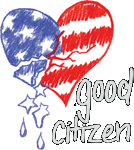Strong individuals and families are critical, but not enough. Individuals and families need and rely on others for day-to-day survival, food, shelter. These “others” are the community. Our country is really a community of communities. A sense of community and of belonging are something most of us need and want – but which I believe are missing for many of us.
In today’s world where both parents often work, where technology allows us to communicate without leaving the house, where crime has limited our outside activities, where we travel and are a mobile society,and where communities are more diverse, a sense of community is not as easy to come by as it used to be. Here are some actions that can help create a better sense of community and let each other know that we are all in this together.
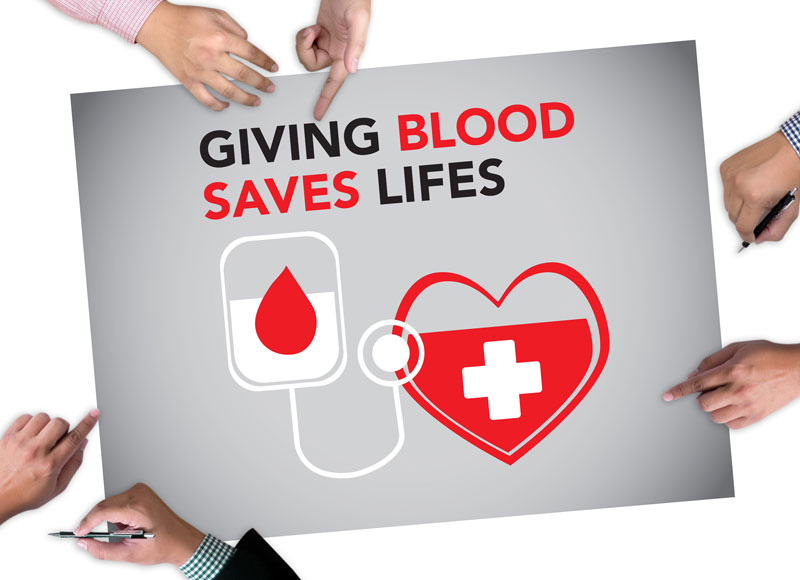
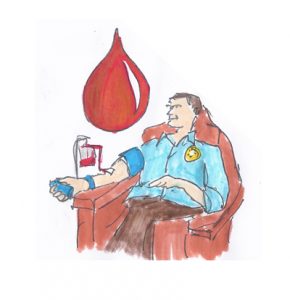 Every day thousands of Americans need, and receive, pints of blood – and the need for blood is growing because of medical advances and an aging population. For example, a liver transplant, increasingly routine as more and more hepatitis C victims become sick with liver cancer, can use up to 100 pints per day. Those inflicted with Sickle Cell Anemia require a transfusion every three to four weeks.
Every day thousands of Americans need, and receive, pints of blood – and the need for blood is growing because of medical advances and an aging population. For example, a liver transplant, increasingly routine as more and more hepatitis C victims become sick with liver cancer, can use up to 100 pints per day. Those inflicted with Sickle Cell Anemia require a transfusion every three to four weeks.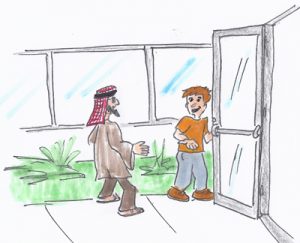 We live in a country with more diversity of every kind than any other nation on earth. It’s one of our greatest strengths. It’s also one of our greatest challenges.
We live in a country with more diversity of every kind than any other nation on earth. It’s one of our greatest strengths. It’s also one of our greatest challenges.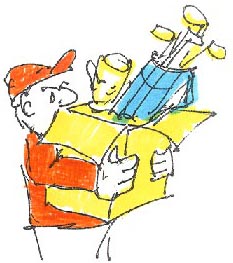 Many of us have things we rarely, if ever, use. Months and years go by and these things sit in our closets, attics and garages – not used. Things like clothes, furniture, sporting goods, kitchenware, and art work, etc.
Many of us have things we rarely, if ever, use. Months and years go by and these things sit in our closets, attics and garages – not used. Things like clothes, furniture, sporting goods, kitchenware, and art work, etc.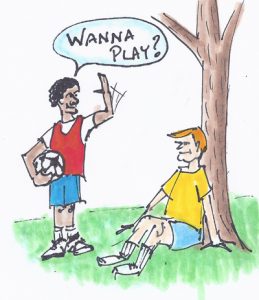 Unfortunately, we often tend to form our social groups around individuals who seem similar. When we do, we miss out on the great qualities of other cultures or ethnic groups. And, the longer we shelter ourselves from other cultures, the more we tend to stereotype them.
Unfortunately, we often tend to form our social groups around individuals who seem similar. When we do, we miss out on the great qualities of other cultures or ethnic groups. And, the longer we shelter ourselves from other cultures, the more we tend to stereotype them.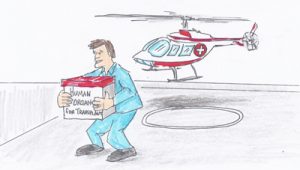 The organ donor program is a national program for donating parts of one’s body upon death. Donated organs and tissue are given either to other individuals or to research.
The organ donor program is a national program for donating parts of one’s body upon death. Donated organs and tissue are given either to other individuals or to research.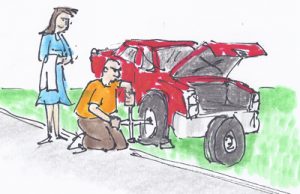 Good deeds are the best and most pure when the persons you do them for doesn’t know who you are. Here are some examples:
Good deeds are the best and most pure when the persons you do them for doesn’t know who you are. Here are some examples: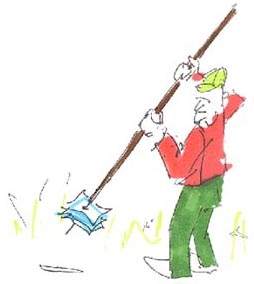 I can not prove it, but would “bet the house” that individuals function better and treat others better in a clean environment. A clean environment sets expectations of higher behavior. A clean environment not only enhances our quality of life and the natural beauty of this country but the value of property.
I can not prove it, but would “bet the house” that individuals function better and treat others better in a clean environment. A clean environment sets expectations of higher behavior. A clean environment not only enhances our quality of life and the natural beauty of this country but the value of property.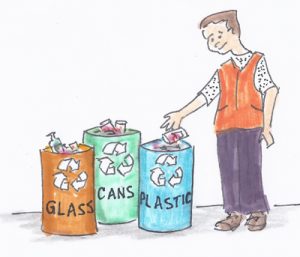 For each thing we throw away and for each thing that we have but don’t use, more of this country’s and this planet’s natural resources must be used – more trees cut down, more animals raised and slaughtered, more water resources depleted, more oil and minerals extractes, and more pollution is created. And while some of these natural resources do get replenished, it takes a long long time.
For each thing we throw away and for each thing that we have but don’t use, more of this country’s and this planet’s natural resources must be used – more trees cut down, more animals raised and slaughtered, more water resources depleted, more oil and minerals extractes, and more pollution is created. And while some of these natural resources do get replenished, it takes a long long time.
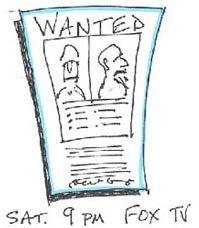 Watch “
Watch “